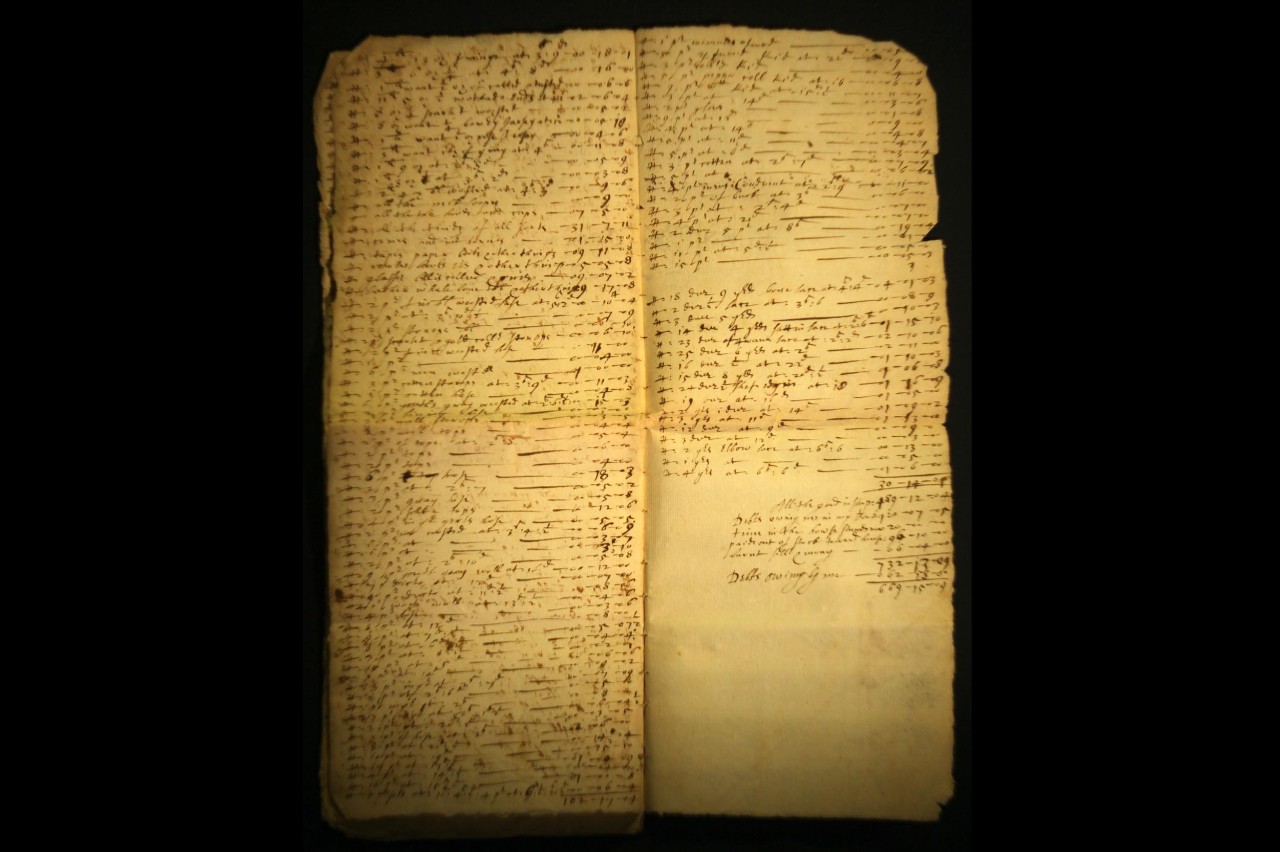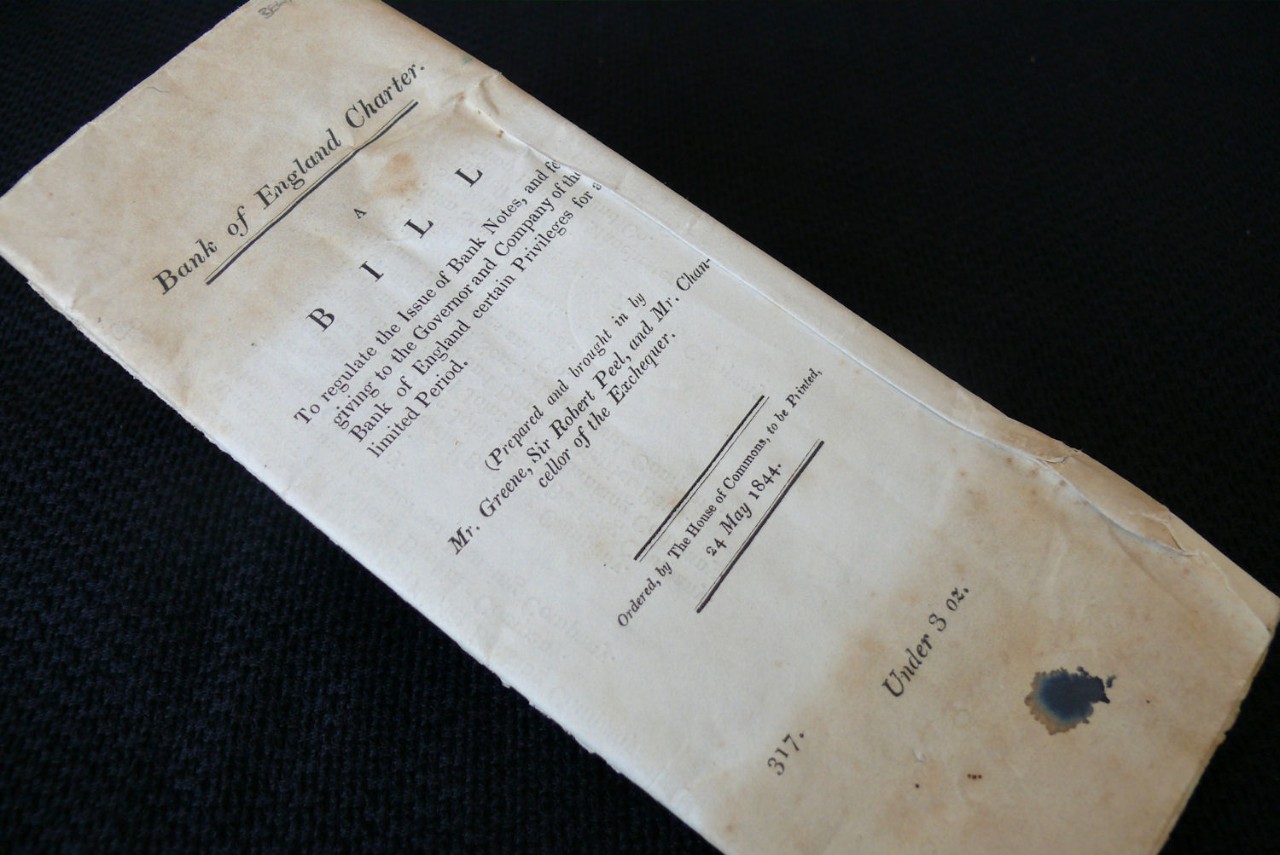Object 31: Cloth stock account, 1653-59

Stocktaking account of Nottingham cloth merchant Thomas Smith, 1653-59, showing his business evolving into a bank
Thomas Smith started in business in the 1650s as one of Nottingham's many cloth merchants, but he ended up as something unique; England's first banker outside London. This stocktaking account gives the first hints of this transition taking place. Alongside entries relating to cloth in his warehouses, we find details of assets in the form of monetary debts owed to him.
What began as a sideline went on to become the first English bank outside London. It provided rudimentary banking services to merchants and landowners who would previously have had to look to London for such facilities, with all the inconvenience and insecurity that such distance implied. It could therefore be said that Smith created England's first local bank.
By the time Smith died in 1699 the banking side of his business had overtaken its cloth-selling origins. His descendants continued the process, eventually opening sister-banks in London, Lincoln, Hull, Newark and Derby.
| evolved from the existing businesses of merchants, carriers, brewers and solicitors
The Smith family banks began a trend. Before 1750 there were only a handful of provincial banks in England and Wales, but by 1790 the number had reached 200, rising to around 700 by 1812. Many had evolved, like Smith's, from the existing businesses of merchants, carriers, brewers and solicitors. They were already part of tight-knit communities in ways that an outsider never could have been, and could use local knowledge and community loyalty to build their success.
The provincial partnership banks' days were numbered, however. From the 1820s onwards they began to be replaced by bigger shareholder-owned banks, known as joint stock banks, which enjoyed larger capital bases and greater stability. In 1902 the five remaining Smith family banks merged with Union Bank of London to form Union of London & Smiths Bank, later to become part of NatWest.










